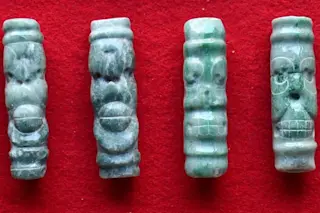Friday night's episode of Stargate Atlantis featured the show's resident genius physicist, Rodney McKay, making a visit to an elaborate scientific presentation conducted by an old rival. Because McKay is, well, McKay, he thinks this is the ideal setting for a first date with Atlantis's doctor Jennifer Keller (Firefly fans will recognize Jewel Staite in the role). McKay runs into a whole bunch of frenemies at the presentation, including hilarious cameos by the American Museum of Natural History's Neil de Grasse Tyson (who has been name checked before on Atlantis) and Bill "The Science Guy" Nye. Things take a turn for the worse when McKay's rival (played by Kids in the Hall alum Dave Foley) demonstrates his latest invention, a machine intended to solve global warming by sucking heat through a transdimensional bridge to another universe. Of course, Things Go Wrong, and the entire facility and everyone in it is ...
Stargate Atlantis: Herding Physicists
In the latest Stargate Atlantis episode, Rodney McKay's first date goes awry at a scientific presentation rivalry. Chaos ensues!
More on Discover
Stay Curious
SubscribeTo The Magazine
Save up to 40% off the cover price when you subscribe to Discover magazine.
Subscribe













